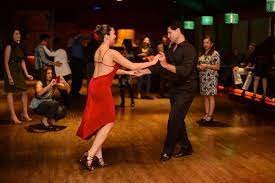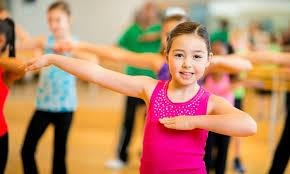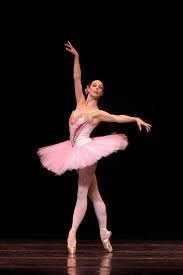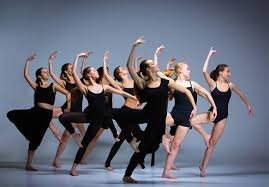How Do You Set Up A Great Dance Studio? Is Dancing Is A Good Career?
Setting up a great dance studio can be a rewarding and exciting endeavor for anyone passionate about dance. A well-designed studio space can enhance the learning and performance experience for dancers, and help create a positive and inviting atmosphere that fosters creativity and growth. Here are some key considerations for setting up a great dance studio:
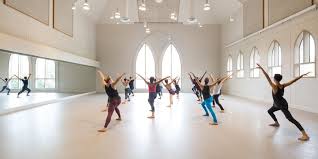
- Location: The location of your dance studio is an important factor to consider. Ideally, the studio should be situated in an area that is easily accessible to your target audience, such as a neighborhood with a large population of dance enthusiasts. Consider factors such as parking, public transportation, and proximity to other amenities such as cafes and shops.
- Space and Layout: The physical space and layout of your dance studio are crucial for creating a comfortable and functional environment for dancers. The studio should have ample space for dancing, with enough room for dancers to move freely and practice different styles of dance. The layout should also be conducive to learning and performance, with appropriate lighting, mirrors, and sound systems.
- Flooring: The type of flooring you choose for your dance studio is an important consideration, as it can impact the safety and performance of dancers. High-quality dance flooring should be slip-resistant, shock-absorbent, and durable enough to withstand the wear and tear of daily use. Popular choices for dance flooring include sprung floors, vinyl or Marley floors, and hardwood floors.
- Equipment and Amenities: A great dance studio should also be equipped with essential amenities and equipment that enhance the learning and performance experience for dancers. These may include dressing rooms, bathrooms, water fountains, seating areas, and storage space for equipment and props. Additionally, having a sound system, speakers, and microphones can help create a professional environment for performances and recitals.
- Instructors: The quality of your dance instructors can make a huge difference in the success of your dance studio. Hire experienced and qualified instructors who are passionate about dance and have a good rapport with students. Make sure they have appropriate certifications and insurance, and are willing to continue their own education and training to stay up-to-date with the latest techniques and trends in dance.
- Programs and Classes: Offering a diverse range of programs and classes can help attract a wider audience and keep dancers engaged and motivated. Consider offering classes in different styles of dance, such as ballet, hip hop, contemporary, salsa, or ballroom, and cater to different age groups and skill levels. You can also offer workshops, summer camps, and special events to keep dancers engaged and excited.
- Marketing and Promotion: Finally, effective marketing and promotion can help get the word out about your dance studio and attract new students. Consider using social media, flyers, posters, and local advertising to promote your studio, and offer incentives for referrals and repeat customers. Create a professional and welcoming website that showcases your programs, classes, and instructors, and highlights the unique features and benefits of your studio.
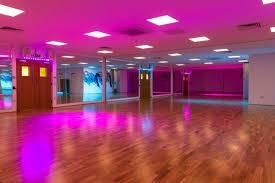
In conclusion, setting up a great dance studio requires careful planning, attention to detail, and a passion for dance. By creating a comfortable and functional space, hiring experienced instructors, offering a diverse range of programs and classes, and effectively marketing your studio, you can create a positive and thriving environment for dancers of all ages and skill levels.
Is Dancing Is A Good Career?
Dancing is not only a fun and fulfilling hobby, but it can also be a rewarding and exciting career for those who are passionate about it. While it may not be the most conventional career path, dancing can provide opportunities for personal and professional growth, artistic expression, and financial stability. Here are some reasons why dancing can be a good career:
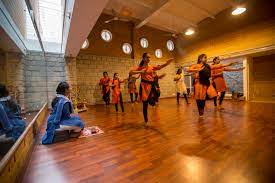
- Artistic Expression: Dancing allows individuals to express themselves creatively and artistically, telling stories and evoking emotions through movement. For those who are passionate about the art form, a career in dance can provide a platform to showcase their talent and creativity on stage, in film, or on television.
- Physical Health: Dancing is a physically demanding activity that requires strength, endurance, and flexibility. A career in dance can help individuals stay in shape and maintain a healthy lifestyle, while also improving their balance, coordination, and cardiovascular health.
- Personal Growth: Dancing can also provide opportunities for personal growth and self-discovery. Through dance, individuals can learn to overcome their fears, build confidence, and develop a strong work ethic. They can also learn to collaborate effectively with others, communicate non-verbally, and develop empathy and compassion.
- Professional Opportunities: Dancing can offer a range of professional opportunities, from performing in dance companies, musicals, and operas, to working as choreographers, dance instructors, or fitness trainers. Dancers can also pursue careers in film, television, or advertising, working as stunt doubles, backup dancers, or models.
- Financial Stability: While it may not be the highest paying profession, a career in dance can provide a stable source of income for those who are dedicated and skilled. Dance companies and theaters typically offer salaries, benefits, and retirement plans, while freelance dancers can earn income through performing, teaching, and choreographing.
- Flexibility and Variety: A career in dance can offer flexibility and variety, allowing individuals to work in different settings and with different types of people. Dancers can work on short-term projects or long-term contracts, travel to different cities and countries, and collaborate with artists from various disciplines.
Of course, pursuing a career in dance can also be challenging and competitive. It requires dedication, perseverance, and a willingness to take risks and face rejection. Many dancers face physical and emotional challenges, such as injuries, stress, and performance anxiety. However, with the right mindset and support, a career in dance can be a fulfilling and rewarding path.
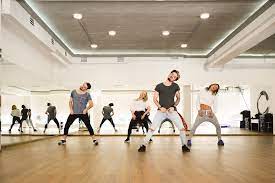
In conclusion, dancing can be a good career for those who are passionate about the art form and willing to commit to the hard work and dedication required. It can offer opportunities for artistic expression, personal growth, and financial stability, while also improving physical health and providing variety and flexibility. While it may not be the easiest path, a career in dance can be a fulfilling and exciting journey for those who are willing to take the leap.

